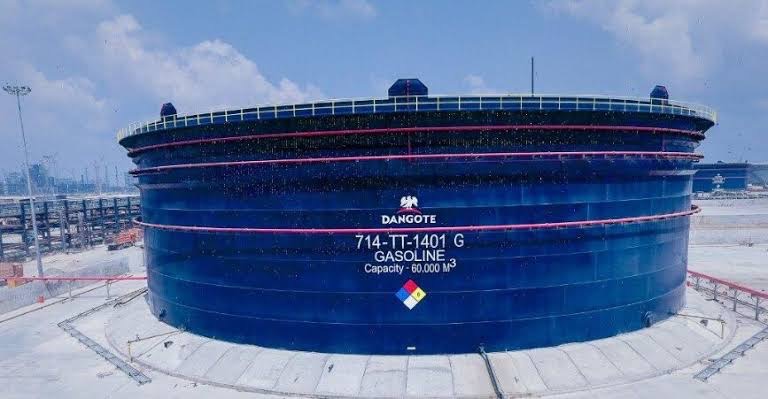KEY POINTS
- Nine-hour meeting between Dangote Refinery and PENGASSAN ended in stalemate, to resume at 2 p.m.
- Union accuses Dangote of sacking 800 workers for joining PENGASSAN; company cites safety reorganization.
- Protests in Abuja blocked NNPC and regulators’ offices, raising risks of wider fuel-sector disruption.
Nigeria’s attempt to broker peace between the Dangote Petroleum Refinery and one of the country’s most powerful oil unions ended without a deal after nine hours of negotiations, deepening a standoff that has already spilled into street protests and disrupted energy regulators.
The meeting, convened late Monday at the Labour Ministry in Abuja, was meant to resolve a dispute over the dismissal of more than 800 Nigerian employees who recently joined the Petroleum and Natural Gas Senior Staff Association of Nigeria, or PENGASSAN. By early Tuesday morning, the parties had failed to find common ground.
Labour Minister Mohammed Dingyadi, who chaired the session alongside his deputy Nkiruka Onyejeocha, confirmed the impasse. “We have listened to both sides extensively, and since no agreement has been reached tonight, we will reconvene at 2 p.m. today to further deliberate,” he told reporters in Abuja.
Union Protests Escalate as Strike Bites
The deadlock comes as union members ramped up demonstrations in the capital, blocking access to the headquarters of the Nigerian National Petroleum Company Limited and two key regulators—the midstream and downstream authority and the upstream commission. The protests, staged on Monday, disrupted the normal operations of the agencies and signaled that the strike action is set to intensify.
PENGASSAN, led by its president Festus Osifo, has accused Africa’s largest refinery of flouting Nigerian labour laws and international conventions by terminating staff for exercising their right to unionize. The Dangote group, meanwhile, argues the sackings were part of a broader reorganization aimed at tightening safety protocols and reducing risks of internal sabotage.
The refinery, a $20 billion project touted as a game-changer for Nigeria’s fuel supply and foreign exchange stability, has become the latest flashpoint in a country where industrial disputes frequently ripple through the economy. Energy analysts warn that the longer the conflict drags on, the greater the risk of delays to operations and disruptions in fuel supply at a time when the government is banking on the refinery to ease its foreign exchange pressures.
For now, attention turns back to Abuja, where both sides will return to the table at 2 p.m. Tuesday. The outcome could set the tone not just for Dangote’s refinery operations but also for how far Nigeria is willing to enforce labour rights in its most high-profile industrial project.



